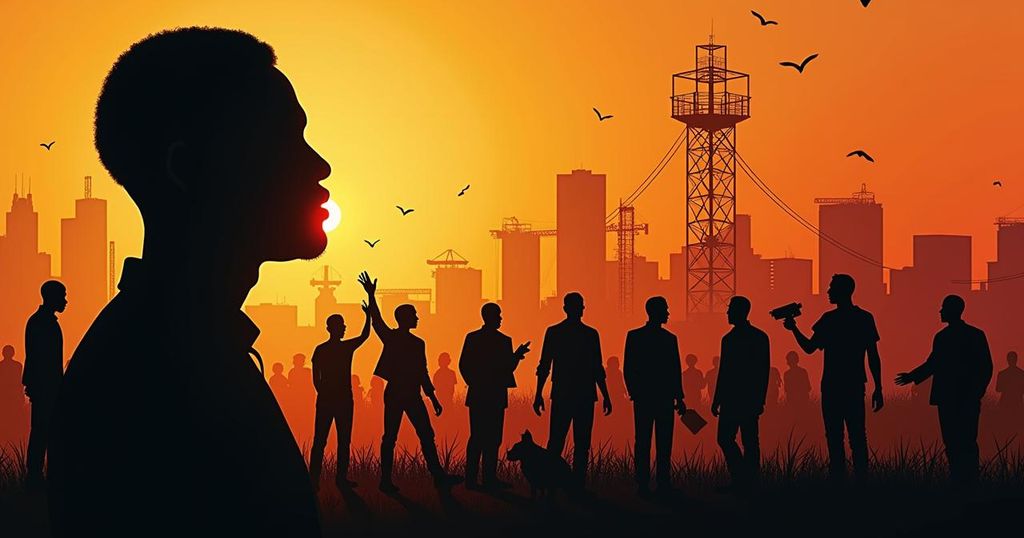Key Insights into Mozambique’s Presidential Election 2024
Mozambique is preparing for its presidential election on Wednesday, choosing a successor to President Filipe Nyusi. With over 17 million registered voters, major candidates include David Chapo from the ruling Frelimo party, independent Venacio Mondlane, Lutero Simango from the Democratic Movement, and Ossufo Momade from Renamo. Key issues include a jihadist insurgency, economic hardships, and allegations of corruption. The electoral results will be announced within a 15-day timeframe following the polls.
Mozambique is gearing up for a pivotal presidential election on Wednesday, set to determine the successor to President Filipe Nyusi, who has completed two terms in office. Approximately 17 million voters are registered in this southern African nation of 31 million, tasked with selecting a new president, 250 members of parliament, and representatives for provincial assemblies. While the ruling Front for the Liberation of Mozambique (Frelimo) is anticipated to maintain its grip on power, at least four candidates are vying for change amidst a backdrop of ongoing challenges including a jihadist insurgency in the north and the impacts of climate change along the vulnerable coastline. Over 1.3 million Mozambicans have been displaced by conflict, and millions more endure severe food shortages due to prolonged drought conditions. Previous local elections suffered from allegations of vote-rigging and violence, but this time around, election-related concerns appear to have diminished. David Chapo, a former governor of Inhambane and the candidate for the ruling Frelimo party, is seen as the leading contender. His strongest challenger is independent candidate Venacio Mondlane, a banker and forestry engineer who is advocating under the slogan “Save Mozambique, this country’s ours” and has garnered significant public support. Other notable candidates include Lutero Simango from the Democratic Movement of Mozambique, gaining traction among young voters due to his focus on inequality and job creation, and Ossufo Momade representing Renamo, the opposition party with roots in an earlier rebel movement. Key issues at stake include the ongoing insurgency in Cabo Delgado since 2017, which has caused widespread devastation, as well as social and economic challenges such as unemployment, hunger, and corruption, particularly the fallout from the contentious “tuna bond” scandal involving significant fiscal mismanagement. The electoral process is set to be swift, with voting concluding in one day and results expected to be reported in a staggered manner. Official results from the National Election Commission will follow within 15 days, with a framework for addressing any disputes.
The upcoming presidential election in Mozambique is not only a political milestone but also a critical turning point for a nation grappling with numerous challenges. The ruling party, Frelimo, has maintained political dominance since the country gained independence from Portugal in 1975. Yet, the current socio-political landscape is marked by a long-standing violent insurgency linked to Islamist extremist groups, economic struggles exacerbated by drought and hunger crises, and persistent corruption scandals that have eroded public trust in political institutions. The backdrop of these elections includes a recent history of electoral violence and public dissatisfaction, raising the stakes for candidates as they campaign to win the trust of the electorate amid calls for significant reforms. This election may serve as a litmus test for the Mozambican political scene and the potential for change in governance.
In conclusion, Mozambique’s forthcoming presidential election is set against a complex backdrop of political, social, and economic challenges. As the country prepares to choose a new leader, the candidates are required to address critical issues such as security, development, and governance that have long affected the populace. The electoral outcome will not only determine the trajectory of governance but may also signify the electorate’s desire for change amidst decades of Frelimo’s dominance and growing discontent over unresolved issues.
Original Source: apnews.com




Post Comment